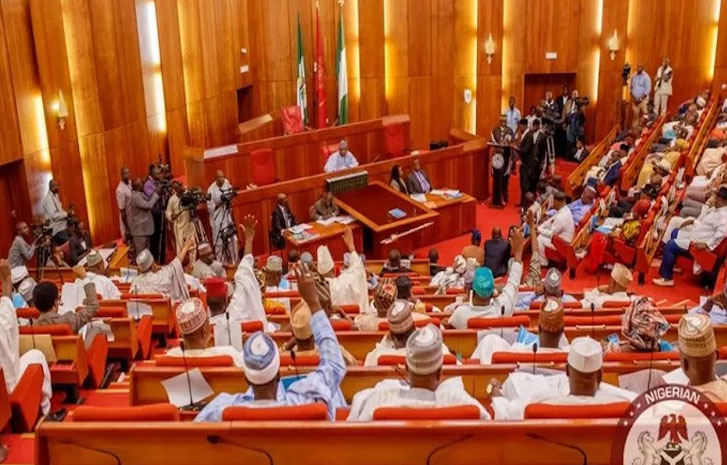On Wednesday, the Senate took a significant step back from regulating the private investigation industry in Nigeria by rejecting a bill that aimed to establish licensing standards and ethical guidelines for private investigators. The bill, introduced by Senator Osita Ngwu from Enugu West, was met with mixed reactions during its debate on the floor of the Senate, ultimately leading to its rejection by a majority of lawmakers.
In his presentation, Senator Ngwu, who also serves as the Senate Minority Whip, outlined the key objectives of the bill. He emphasized that it sought to create a formal framework for the licensing and practice of private investigators in Nigeria. The legislation was designed to provide a system of regulation and oversight, aiming to maintain professional standards in the industry.
Senator Ngwu pointed out that private investigation is a well-established profession in several countries, including the United Kingdom, the United States, Australia, and Canada. He highlighted that many private investigators have backgrounds in law enforcement or military service, which contributes to their expertise in conducting investigations.
The proposed legislation aimed to achieve several critical goals, including:
The bill sought to address various types of fraud, including corporate fraud, insurance claims, and aviation accident investigations.
It aimed to define the scope of private investigation work, establish professional standards, and provide penalties for professional negligence.
The legislation included provisions to penalize those operating as private investigators without a license and encouraged industry-based training to enhance the skills of practitioners.
Despite its well-articulated objectives, the bill faced substantial opposition during the Senate debate. Senators such as Adams Oshiomhole, Iya Abbas, and Mustapha Saliu expressed concerns, arguing that the bill could create opportunities for personal conflicts and misuse of power within the profession.
On the other hand, some senators, including the Senate Deputy Minority Leader Olalere Oyewumi and Senator Victor Umeh, voiced their support for the bill, recognizing the need for regulation in the growing private investigation sector. However, the mixed reactions from lawmakers indicated a lack of consensus on the proposed legislation.
In light of the divided opinions, Senate President Godswill Akpabio suggested that Senator Ngwu withdraw the bill for further consideration and refinement, a recommendation that was quickly accepted. The rejection of this bill leaves the private investigation industry in Nigeria without formal regulations or licensing standards, highlighting the ongoing challenges in professionalizing the field.
The future of private investigations in Nigeria remains uncertain as the need for regulation continues to be a pressing issue. Advocates for licensing and standards may need to regroup and rework their approach to gain broader support in the Senate for future legislative efforts.







